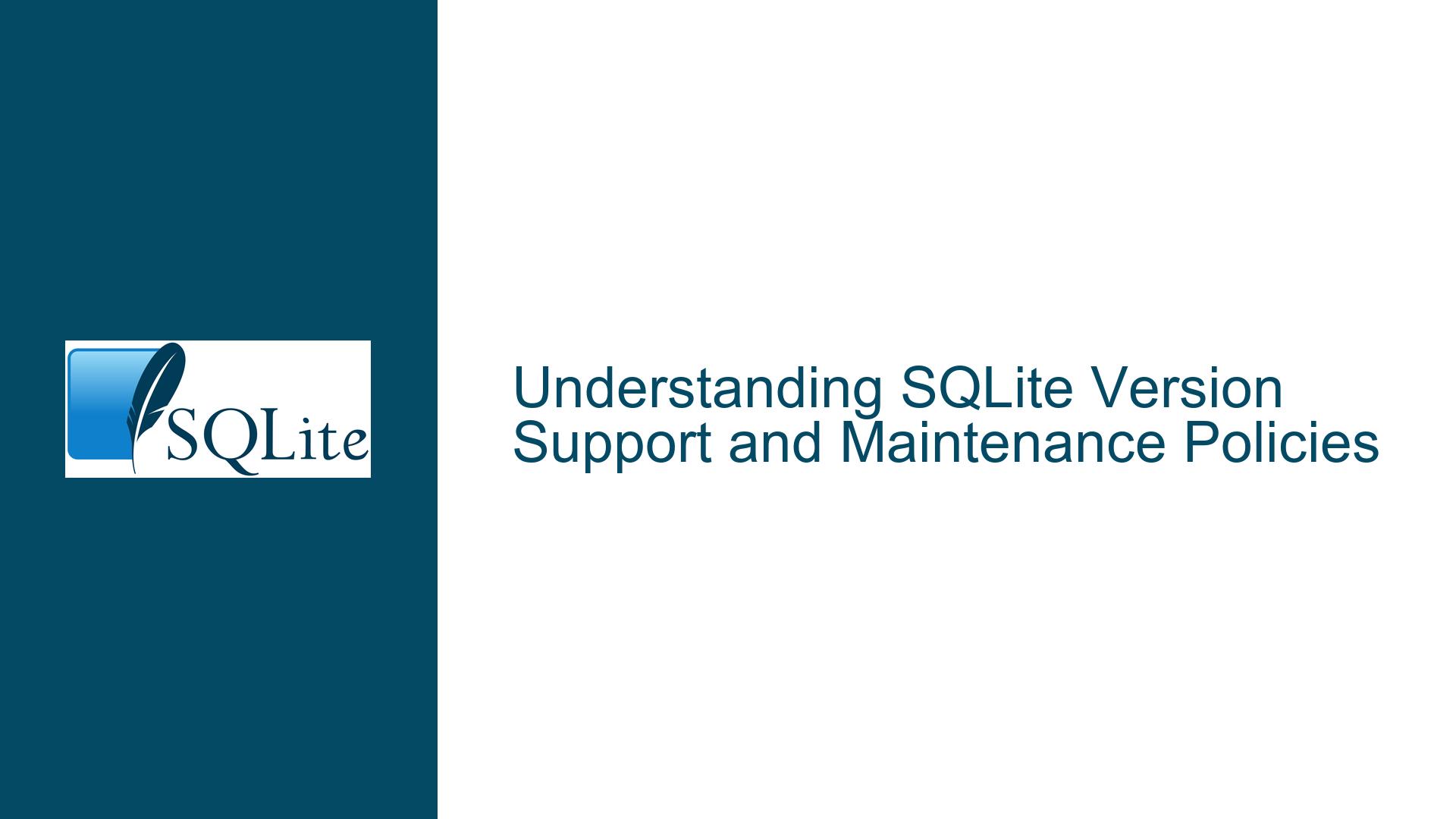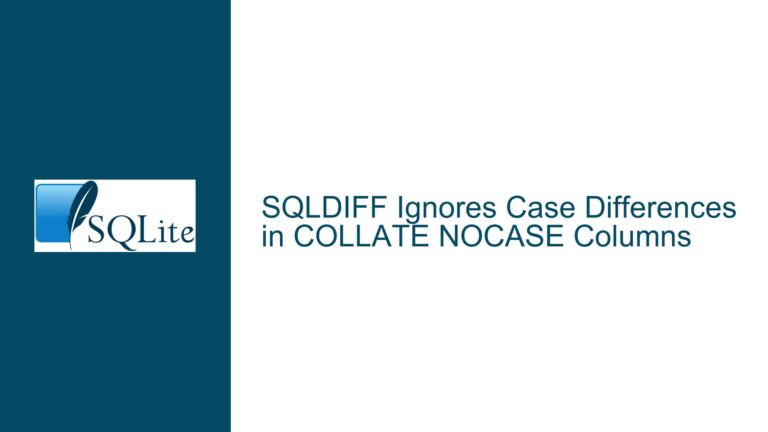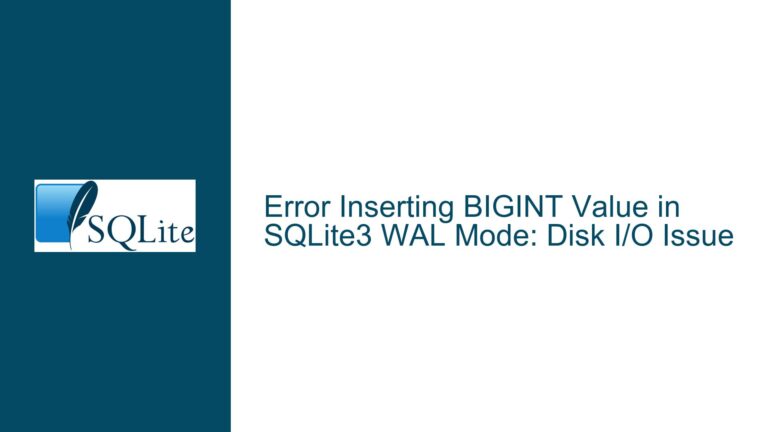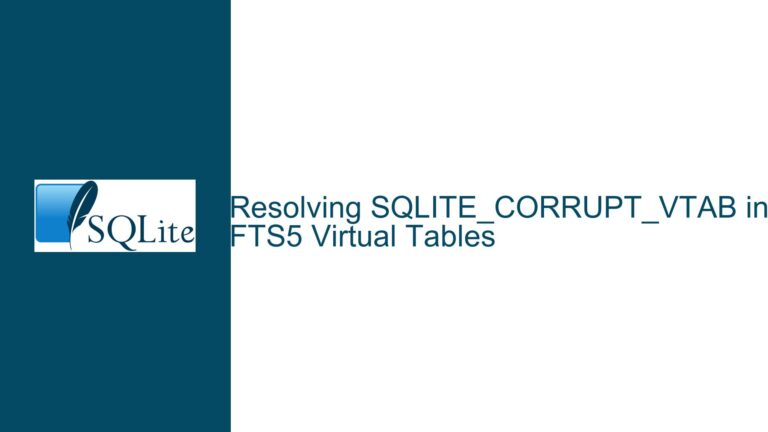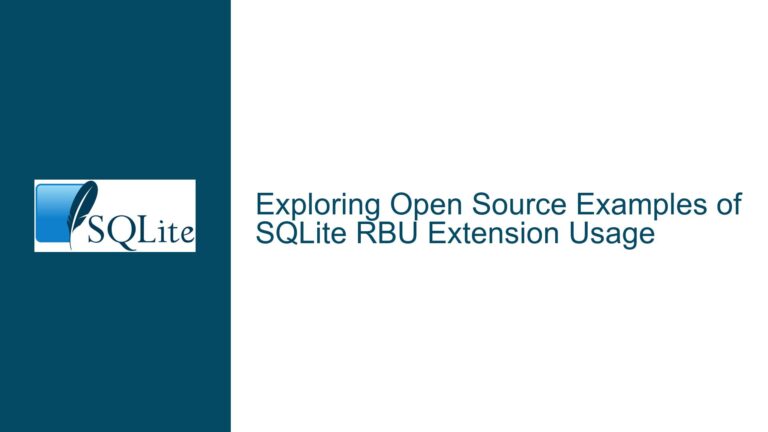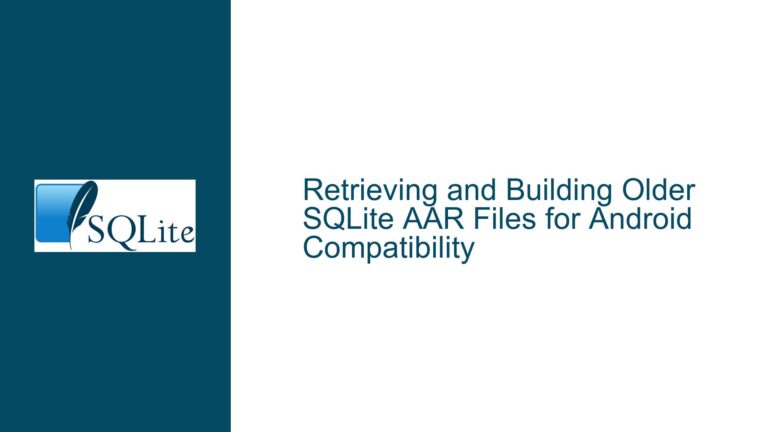SQLite Version Support and Maintenance Policies
SQLite Version Support and Maintenance Overview
SQLite, a widely-used, lightweight, and serverless database engine, follows a unique versioning and maintenance policy that can sometimes be unclear to users. The core of the issue revolves around understanding which versions of SQLite are actively supported and maintained by the SQLite development team. Unlike some other software projects, SQLite does not maintain a publicly available list of supported versions. Instead, the support lifecycle is influenced by the release of new versions and the needs of commercial backers.
SQLite’s versioning scheme follows a three-part format: X.Y.Z, where X represents the major version, Y the minor version, and Z the patch level. When a new minor version (X.Y+1) is released, the previous minor version (X.Y) typically ceases to receive active support unless there are specific requests from commercial backers. Patch releases (X.Y.Z) are often made between the releases of X.Y and X.Y+1, but these are generally limited to the most recent minor version.
The lack of a formal list of supported versions can lead to confusion, especially for users who rely on older versions of SQLite for their applications. This is particularly relevant for organizations that cannot frequently upgrade their software due to compatibility or regulatory constraints. Understanding the nuances of SQLite’s version support policy is crucial for making informed decisions about version upgrades and long-term maintenance strategies.
Factors Influencing SQLite Version Support
Several factors influence which versions of SQLite are supported and maintained. The primary factor is the release cycle of new versions. When a new minor version (X.Y+1) is released, the SQLite development team shifts its focus to maintaining and improving this new version. Patch releases (X.Y.Z) for the previous minor version (X.Y) become less frequent and are usually only issued if there are critical bugs or security vulnerabilities that need to be addressed.
Another significant factor is the involvement of commercial backers. SQLite is an open-source project, but it also offers commercial support contracts. These contracts allow organizations to request specific support for older versions of SQLite. If a commercial backer requires a patch for an older version, the SQLite team may release a patch for that version, even if it is no longer actively supported. This means that the availability of support for older versions can be somewhat unpredictable and is often tied to the needs of paying customers.
The nature of SQLite’s development process also plays a role. SQLite is designed to be highly stable and backward-compatible, which reduces the need for frequent updates. However, this stability also means that once a new version is released, the focus on older versions diminishes quickly. The SQLite team prioritizes maintaining the latest version to ensure that it remains robust, secure, and efficient.
Troubleshooting Steps, Solutions, and Fixes for Version Support Issues
For users who need to determine whether a specific version of SQLite is supported, the first step is to consult the official SQLite website and release notes. The release notes provide detailed information about each version, including any patches or updates that have been released. While there may not be a formal list of supported versions, the release notes can offer insights into which versions are still receiving attention from the development team.
If the release notes do not provide sufficient information, the next step is to consider the release date of the version in question. Generally, the most recent minor version (X.Y) and its patch releases (X.Y.Z) are the ones that receive active support. Older minor versions (X.(Y-1), X.(Y-2), etc.) are less likely to be supported unless there is a specific request from a commercial backer.
For organizations that require guaranteed support for older versions of SQLite, the most reliable solution is to enter into a commercial support contract with the SQLite team. This contract ensures that the organization can request patches and updates for the specific versions they are using. While this approach involves a financial commitment, it provides the certainty and stability that some organizations need, especially those in regulated industries or with long-term projects.
Another approach is to plan for regular upgrades to the latest version of SQLite. While this may require some effort in terms of testing and compatibility checks, it ensures that the organization is always using a version that is actively supported and maintained. SQLite’s emphasis on backward compatibility means that upgrading to a new version is generally straightforward, with minimal risk of breaking existing applications.
In cases where upgrading is not feasible, organizations can consider community support as an alternative. The SQLite user community is active and knowledgeable, and there are many forums and discussion groups where users can seek advice and share solutions. While community support does not offer the same level of assurance as a commercial contract, it can be a valuable resource for troubleshooting and problem-solving.
Finally, it is important to monitor the SQLite mailing lists and forums for announcements about new releases and support policies. The SQLite team is transparent about their development process and often provides updates on which versions are receiving attention. Staying informed about these updates can help organizations make timely decisions about version management and support.
In conclusion, understanding SQLite’s version support and maintenance policies requires a combination of consulting official resources, considering the release cycle, and evaluating the need for commercial support. By taking a proactive approach to version management, organizations can ensure that they are using a supported version of SQLite and minimize the risk of running into unsupported or outdated software.
